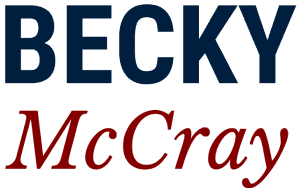Ron Hirst shares his Business Incubator lessons
Thanks for being part of the Positive View of Rural. I can’t tell you how much I love our conversations here.
Ron Hirst replied to the last email on A dozen things to do with an empty downtown building, and I wanted to share it with you.
—————————–
Becky, I really appreciate your newsletter and I have passed items of interest that could be utilized in the rural communities that I assist to those who can put them into practice. I noticed with interest several times that the idea of a business incubator has been mentioned. As the third ever Director of The Quest Center for Entrepreneurs in Reno County, the first business incubator in Kansas, I include some of only my own comments regarding incubators. The Quest Center was started in 1987 because there was insufficient space for start ups in Hutchinson and the economy had just suffered from a down sizing of a major employer.
While the mission has not changed, the method of applying the mission has. In other words just like a business, the business model must adjust to the environment which the business must operate. Which is why 7 years ago we started an “Incubator Without Walls” program. This is where the Quest Center travels the county and meets with individuals, businesses, city councils and others in the 15 smaller rural communities, both incorporated and non-incorporated, in our county. In addition we work with local Chambers of Commerce, community associations, banks and other groups throughout the county. Not a duplication of services but allowing each organization know that we offer services that are not available elsewhere. We now have a decent amount of funds in our revolving loan accounts to offer direct and gap financing to qualified start ups, purchases and expansions of businesses.
In the case of turning a vacant building into an incubator, this can be an excellent program if proper elements are present, in my opinion. Also without some of the proper elements then the building could be like a revolving door. One startup, then another, and so on until it gets a bad name in the community. Owners of the building, private or city/county owned, have to be aware of the cost and direct return or no return on the operations of an incubator before venturing forth. Do owners of other potential lease space within the community look at the incubator as a competition for their space? Will the incubator need to have a core tennant/s in order to meet basic costs of taxes, utilities, maintenance and/or depreciation of any provided M&E?
The proper elements in my opinion would include:
- mandatory business plan before consideration of occupancy,
- someone or group to review the business plan giving the business an OK to lease,
- a lease agreement based on a sliding scale charge with time,
- ability to find or assist with start up financing,
- proper liability insurance,
- a mentor,
- someone or small group to review P&L/financials and overall business operations of occupant on a monthly basis for a minimum of 6 months and then semi annually while occupying the building.
I believe if we (meaning all smaller communities) could really develop local investing in developing local businesses, utilizing their assets in formation of the business, then our rural communities and rural schools would have a much better chance of survival. In assets I am not just talking about finances but natural, cultural, human, social, political, and built capital. Community development and economic development need to happen together. Community Pride is there but sometimes needs a little nudge to grow.
Enough of my thoughts today,
Ron Hirst, Director
Quest Center for Entrepreneurs, Inc.
Quest Ventures, LLC
————————————-
A big thank you to Ron for sharing what he’s learned through experience.
Johnita Crawford from Kansas told me how one town of 500 people was able to leverage $80,000 into three buildings and 6 to 10 new jobs. So you’ll be hearing about that soon.
And Dina Jackson from Harriman, Tennessee, has done a tour of empty buildings. Investors asked her how to know what businesses would work in their town to fill those buildings. So we’ll be talking about that, too.
If you want to add your thoughts on empty buildings, leveraging them, or knowing what new businesses could work in your town, hit reply. I’m listening and willing to share.
Cheers,
Becky
P.S. I released a simple step-by-step guide your local businesses can use to improve their Google Places listing. It’s a draft. (and until I finish up the ever-growing revision of the old Shop Local guide, this one will have to stay a draft!) So if you have suggestions or ideas after looking this over, feel free to send them to me.
